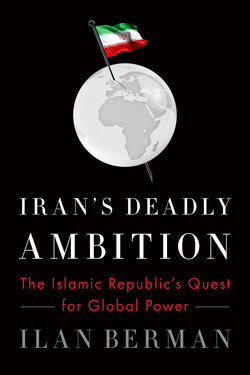Читать книгу Iran's Deadly Ambition - Ilan Berman - Страница 8
На сайте Литреса книга снята с продажи.
ОглавлениеPreface
In Washington, they say, policy debates never truly go away. Instead, they come back, time and time again, albeit occasionally in different forms.
That has certainly been the case with Iran. In 2004, when I wrote my first book on the subject, Tehran Rising, few government officials—and even fewer ordinary Americans—were familiar with the ideology animating the Islamic Republic or the true scope of the problems the Iranian regime poses for our foreign partners and for us.
A decade later, quite a few more people are. Yet, by and large, America is as divided as ever about how best to address the strategic challenge that Iran represents. In fact, we have in many ways moved further away from a sober assessment of the scale of Iran’s ambitions and its destabilizing potential on the world stage.
So this book is intended, at least in part, to serve as a corrective of sorts. It is not, by any stretch, a comprehensive review of Iran’s history, ideology, and activities. Those topics have been covered in countless books already and will assuredly be the subjects of many more. Instead, this work is my humble attempt to outline the true scope of a problem that I am convinced the U.S. government will need to deal with in the years ahead.
That I was able to undertake this project at all is a credit to American Foreign Policy Council President Herman Pirchner, Jr. For nearly fifteen years, he has provided me with an intellectual home, indulged my interests, underwritten my projects, and challenged me to think critically about the state of the world and America’s place in it. Through it all, he has been a tireless advocate, a fierce critic, and a true friend.
In putting together this book, I was extremely fortunate to be able to rely on the insights of Michael Doran, Jonathan Schanzer, Joel Rayburn, Matt Levitt, Joseph Humire, Claudia Rosett, Joshua Eisenman, Darin Dutcher, and Larry Haas. They took time out of their busy schedules to provide me with valuable criticism, further refine my thinking, and sharpen my prose. For that, they already have my deepest thanks. But, to the extent that this book helps contribute to the national security debate, they also deserve at least part of the credit. Needless to say, any mistakes that might be contained herein are entirely my own.
As always, I am grateful to Annie Swingen, Jeff Smith, and Rich Harrison, my colleagues at the American Foreign Policy Council, for their support and friendship and for making our work truly a team effort. Thanks go as well to our tireless in-house editor, Liz Wood, for working her magic on this book, the way she has so many times before. Our pool of talented interns, including Cameron Harris, Collin McClure, Jason Czerwiec, and James Williams, also deserves recognition for helping with the research on various aspects of this book, as well as for pitching in on sundry other projects and initiatives.
Most of all, I owe an enormous debt to my family. As any author will tell you, book writing is, by its nature, a lonely and selfish undertaking. It requires the freedom to take long absences from the outside world and depends on the patience of others. My wife, Hillary, and my children, Mark and Lauren, provided me with all that during the months and months that I was preoccupied with this project. But they also gave—and continue to give—me much more: their love, their support, and a reason to keep fighting the good fight.
ILAN BERMAN
Washington, D.C.
January 2015
